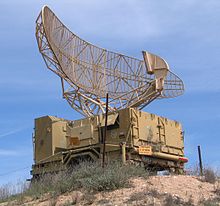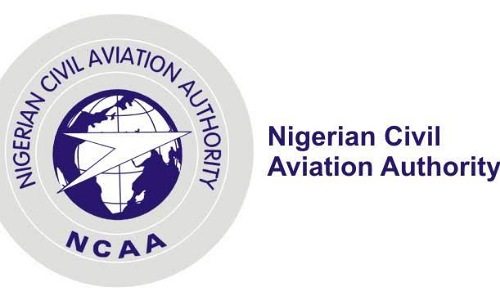Aviation
NAMA clarifies effect of Power outage on Lagos Radar

By Ikenna UGWU and Oyise OGHENE
LAGOS-Nigerian Airspace Management Agency (NAMA) has confirmed that the Lagos radar was shut down briefly to protect the system from technical defect following power outage at the site which affected the Automatic Mains Failure (AMF) switch.
The Automatic Mains Failure switch connects or disconnects the mains or generator and vice versa depending on availability.
The breakdown of the switch over the weekend was caused by incessant power outage at the airport, forcing the agency to deploy an emergency procedure to save the system from colossal damage.
The incident, however, did not pose any threat to air traffic safety as air traffic controllers on duty immediately shifted to procedural handling of flights as they are equally licensed to practice such during an emergency situation.
In a press statement issued by the agency, the Managing Directo, Engineer Mazi Nnamdi Udoh, supervised the Engineers who were deployed to rectify the fault on the AMF and were able to restore power to the radar system which began operation shortly after switching to the generator.
The operation of the radar was part of the epoch making landing at the Lagos airport of a newly acquired Dreamliner-Boeing 787 by Ethiopian Airlines.
Engineer confirmed last night that the incident got nothing to do with the integrity of the radar,saying that “the system is working perfectly”.
Speaking further on the development General Manager, Public Affairs, Nigerian Airspace Management Agency (NAMA), Mr. Supo Atobatele has said that radar shut down does not pose any threat to safety of aircraft flying in the Nigerian airspace.
Mr. Atobatele said that the radar can be shut down for maintenance purposes adding that all that the ATC would do was to switch to the procedural system by using radio to communicate with the pilots in the air.
According to him,”there is no serious implication about the shutting down of the radar. Radar itself is an instrument, it is a system on its own and what it does is to assist the Air Traffic Controllers (ATC) to vector aircraft and monitor the aircraft”
Mr. Atobatele however pointed out that in the event of radar shut down, what would happen is that the ATC would fall back on the procedural method of communicating with the pilots through the use of radio.
According to him,”In the event where the radar is shut down, what the ATC will do is that they will immediately switch to what is called the procedural system, they will use radio to communicate with the pilots, so there is no threat in that, the question we should ask is what were they using before the advent of radar, it was the procedural system, it is only that the radar makes the job faster, it can handle more traffic like in one hour, it can handle about ten to fifteen aircraft but when you are using procedural, the traffic you handle will be lower than when you are using the radar system”
Meanwhile, one of the General Manager in the Engineering Department, of the agency said in the event of a total failure of the radar that the aviation industry would be plunge into a big crisis situation.
The General Manager who refused to have his name in print pointed out that it would be difficult for the Air Traffic Controllers (ATC) to effectively monitor the various aircraft in the air in the event that the radar system was shut down completely.
He said”If the radar is shut down briefly which of course means that we have power redundancy. But if it is completely shut down, definitely we will have crisis in our hands because you have aircraft that are sequence on their final that is about landing and then everything suddenly goes off. You may not know the numbers of aircraft and their spacing between one another, their flight levels and so on, so that can cause problem”
“This is what is called procedural air navigation, you need to see what the aircraft is doing, you want to talk to an aircraft, you need to know the flight level and sequence them on landing, you need to see them and see their performance, you have to see their altitude as well” he added.General Manager, Public Affairs, Nigerian Airspace Management Agency (NAMA), Mr. Supo Atobatele has said that radar shut down does not pose any threat to safety of aircraft flying in the Nigerian airspace.
Mr. Atobatele said that the radar can be shut down for maintenance purposes adding that all that the ATC would do was to switch to the procedural system by using radio to communicate with the pilots in the air.
According to him,”there is no serious implication about the shutting down of the radar. Radar itself is an instrument, it is a system on its own and what it does is to assist the Air Traffic Controllers (ATC) to vector aircraft and monitor the aircraft”
Mr. Atobatele however pointed out that in the event of radar shut down, what would happen is that the ATC would fall back on the procedural method of communicating with the pilots through the use of radio.
According to him,”In the event where the radar is shut down, what the ATC will do is that they will immediately switch to what is called the procedural system, they will use radio to communicate with the pilots, so there is no threat in that, the question we should ask is what were they using before the advent of radar, it was the procedural system, it is only that the radar makes the job faster, it can handle more traffic like in one hour, it can handle about ten to fifteen aircraft but when you are using procedural, the traffic you handle will be lower than when you are using the radar system”
Meanwhile, one of the General Manager in the Engineering Department, of the agency said in the event of a total failure of the radar that the aviation industry would be plunge into a big crisis situation.
The General Manager who spoke to Biztellers on the condition of anonymity pointed out that it would be difficult for the Air Traffic Controllers (ATC) to effectively monitor the various aircrafts in the air in the event that the radar system was shut down completely.
He said”If the radar is shut down briefly It of course means that we have power redundancy. But if it is completely shut down, definitely we will have crisis in our hands because you have aircraft that are sequence on their final that is about landing and then everything suddenly goes off. You may not know the numbers of aircraft and their spacing between one another, their flight levels and so on, so that can cause problem”
“This is what is called procedural air navigation, you need to see what the aircraft is doing, you want to talk to an aircraft, you need to know the flight level and sequence them on landing, you need to see them and see their performance, you have to see their altitude as well” he added.
Aviation
JUST IN: Emirates Airlines Set To Restore Flights To Nigeria
Emirates Airlines has announced plan to resume flight operations to Nigerian airports on October 1, 2024, after a two-year hiatus.
The news was shared by the airline on its verified X handle on Thursday.
It stated, “We’re back Nigeria! We’ll be resuming services to Lagos from 1 October 2024, and we can’t wait to offer unrivalled connectivity to Dubai and beyond to over 140 cities.”
The development was hinted at earlier by Nigeria’s Minister of Aviation and Aerospace Development, Festus Keyamo, SAN.
In a post on X on Wednesday, Keyamo disclosed that he met with the Ambassador of the United Arab Emirates (UAE) to Nigeria, Salem Saeed Al-Shamsi, in Abuja on Tuesday.
He stated that during the meeting, Al-Shamsi handed him a correspondence from Emirates Airlines confirming the flight resumption date.
The Minister wrote “Yesterday (On Tuesday), I paid a working visit to the Ambassador of the UAE to Nigeria, His Excellency, Salem Saeed Al-Shamsi at the UAE Embassy in Abuja.
“He handed me a correspondence from the Emirates Airline indicating a definite date of their resumption of flights to Nigeria. That date will be formally announced by Emirates Airlines in a matter of days.”
The announcement signifies another step taken by the Nigerian government to reinstate flight operations between Nigeria and the UAE.
In November 2023, Minister Keyamo had announced that Emirates Airlines would soon disclose the exact date of their return to Nigerian skies.
The flight suspension between the two nations had been amidst a broader diplomatic dispute, primarily concerning the Bilateral Air Services Agreement (BASA).
Visa restrictions further exacerbated the situation, impacting numerous Nigerian migrants and tourists, given the UAE’s popularity as a destination.
Recall that Emirates Airlines suspended its flights to Nigeria in 2022 due to challenges in repatriating funds trapped in the country.
Despite a meeting in September 2023 between Nigeria’s President Bola Tinubu and UAE President Mohamed bin Zayed Al Nahyan in Abu Dhabi, where there were rumors that the UAE had lifted its visa ban on Nigerian travelers, the ban still stands.
Presidential spokesman Bayo Onanuga later clarified that the UAE had not lifted the visa restrictions on Nigerians.
Aviation
JUST IN: NCAA Suspends 3 Jet Operators

The Nigerian Civil Aviation Authority (NCAA) has taken action by suspending the permits of three private jet operators due to their involvement in commercial flights.
Chris Najomo, the Acting Director General of the NCAA, issued this suspension during a briefing to all airlines on Tuesday.
Additionally, Najomo ordered a re-evaluation of all PNCF permits within a 72-hour timeframe.
The head of the NCAA stated that Festus Keyamo, the Minister of Aviation and Aerospace Development, had instructed the discontinuation of private jets’ commercial use in 2023.
Despite this directive, the operators persisted in their commercial activities.
Najomo said “Subsequently, in March 2024, the NCAA had issued a stern warning to holders of the permit for non commercial flights, PNCF, against engaging in the carriage of passenger cargo or mail for hire and reward.
“The Authority had also deployed its officials to monitor activities of private jets at terminals across the airports in Nigeria.
“As a consequence of this heightened surveillance, no fewer than three private operators have been found to be involved in violation of the annexure provision of their PNCF and Part 9114 of the Nigeria Civil Aviation Regulations 2023.
“In line with our zero tolerance for violation of regulations, the Authority has suspended the PNCF of these operators.”
Aviation
Keyamo Charges NCAT To Produce 4,203 Controllers By 2037

Minister Festus Keyamo has urged the Nigerian College of Aviation Technology in Zaria, Kaduna State, to create new solutions that can speed up the training of skilled air traffic controllers.
This call comes as Africa anticipates a need for 4,203 new air traffic controllers by the year 2037.
The minister made this statement on Wednesday during the 34th IFATAC Africa and Middle East Regional meeting in Abuja.
Addressing the gathering, the minister noted that the goal of training 4,203 new air traffic controllers aligns with the projection from the International Civil Aviation Organization (ICAO).
He further affirmed the ministry’s commitment to offering full support to NCAT, ensuring it not only meets but surpasses its mandated duties and roles.
He said “ICAO projects that by the year 2037, Africa will require 4,203 new air traffic controllers. The onus rests on the Aviation College of Aviation Technology (NCAT) to develop innovative ideas solutions to accelerate the training of new and proficient air traffic controllers.
The minister, represented by acting director Michael Chiko from Air Safety and Administration, highlighted the rapid evolution of the air traffic control profession.
He stated “The profession of air traffic control has evolved rapidly, transitioning from simple flag signalling to sophisticated technologies. This evolution facilitates management of the surging number of aircraft traversing our
skies daily.
“As a vital, indispensable component of air safety, air traffic controllers are responsible for the safe, orderly and expeditious flow of air traffic. Therefore, I am not unaware of the critical role you play and invariably, the heavy burden you bear.
“This burden is compounded by increased air traffic, workforce shortages, technological shifts; necessitating rigorous training regimes.
“More so, with the emergence of unmanned aerial vehicles, reshaping dynamics and challenging the norm, it is thus paramount to prepare for the future and indeed Nigeria like other countries must prepare for the future.” he added
During the event, Mr. Lawrence Pwajok, representing Engr. Mohammed Odunowo, the managing director of the Nigerian Airspace Management Agency (NAMA), emphasized the relevance of the 34th IFATCA Africa and Middle East Regional meeting’s theme, titled ‘Shaping the Future: Trends and Insights On ATC Training for Tomorrow’.
Pwajok highlighted the significance of this theme, especially as air traffic control commemorates 100 years since its inception.
He suggested examining the historical perspective of air traffic control, tracing its origins from Croydon airport a century ago to its present form in modern airports like Dubai, Istanbul, JFK, Charles De Gaulle, among others.
This historical comparison aims to provide insights into the potential trajectory of the future air traffic control system over the next century.
He added “It is obvious that the future air traffic management system will be characterised by extensive application of automation, digitization and artificial intelligence.”












